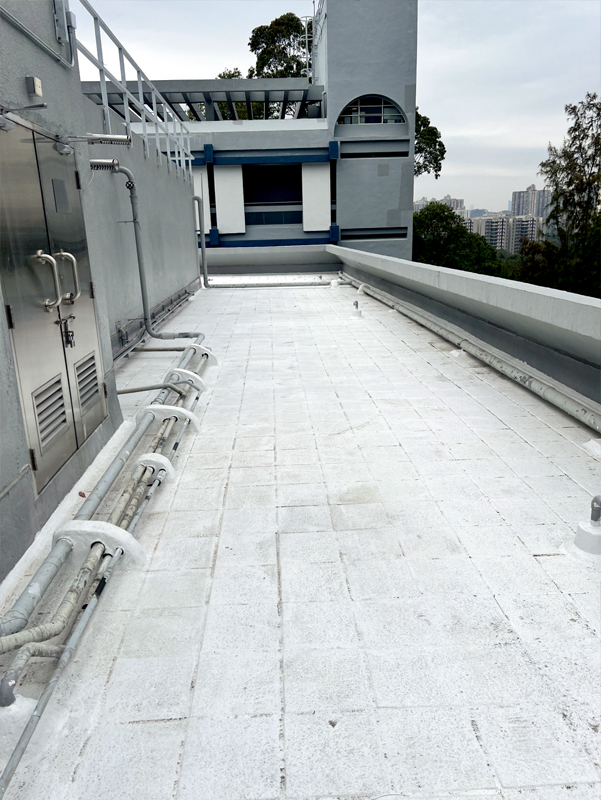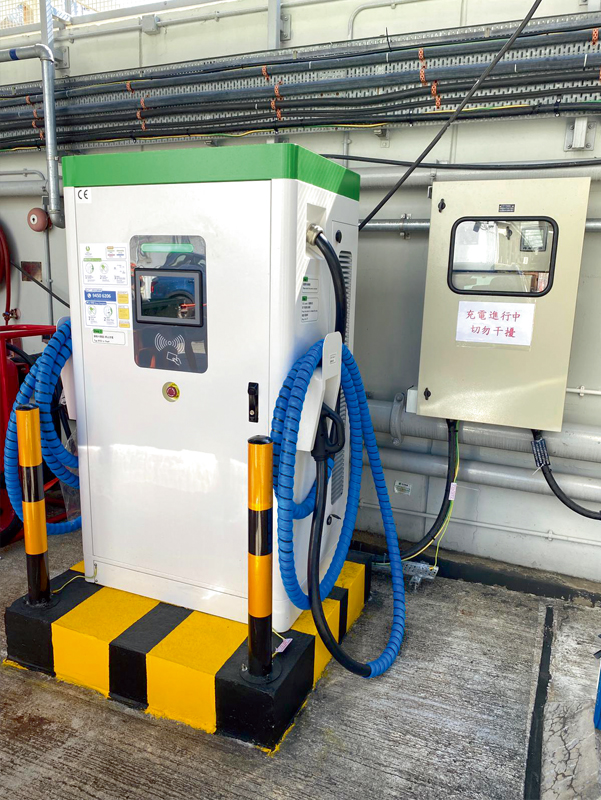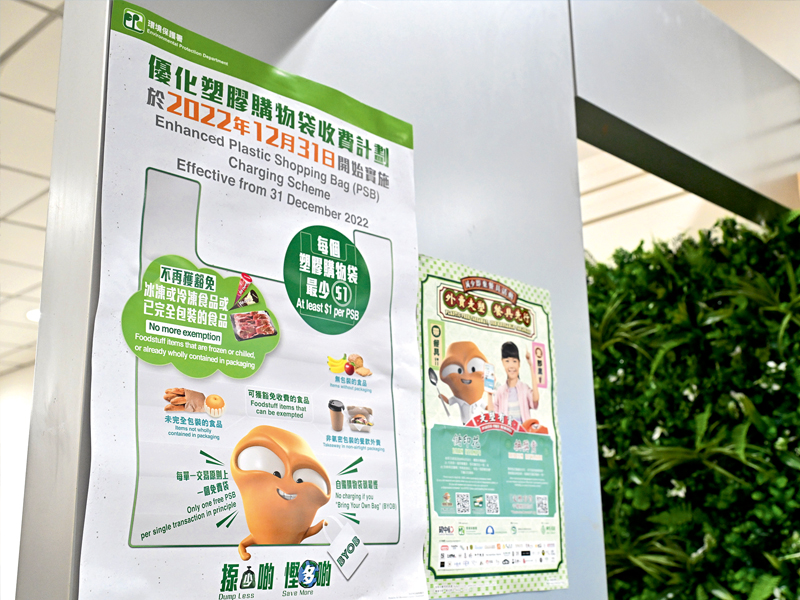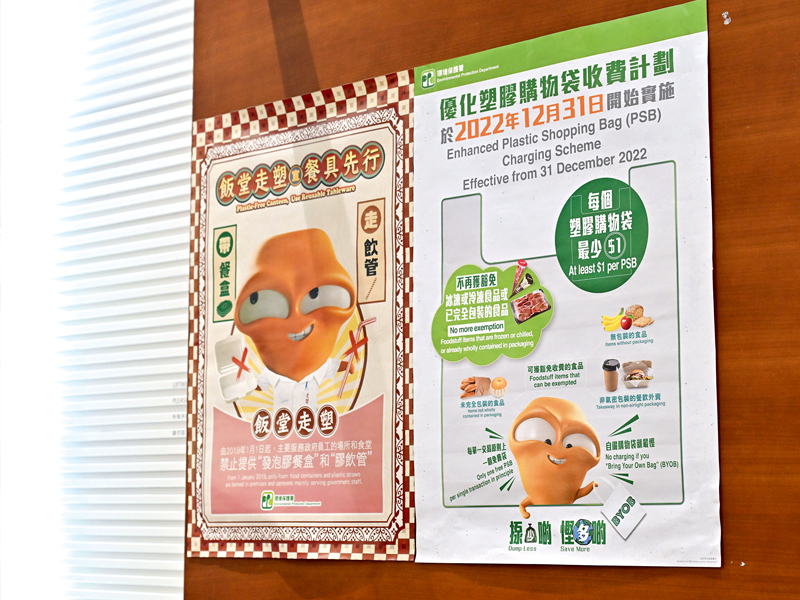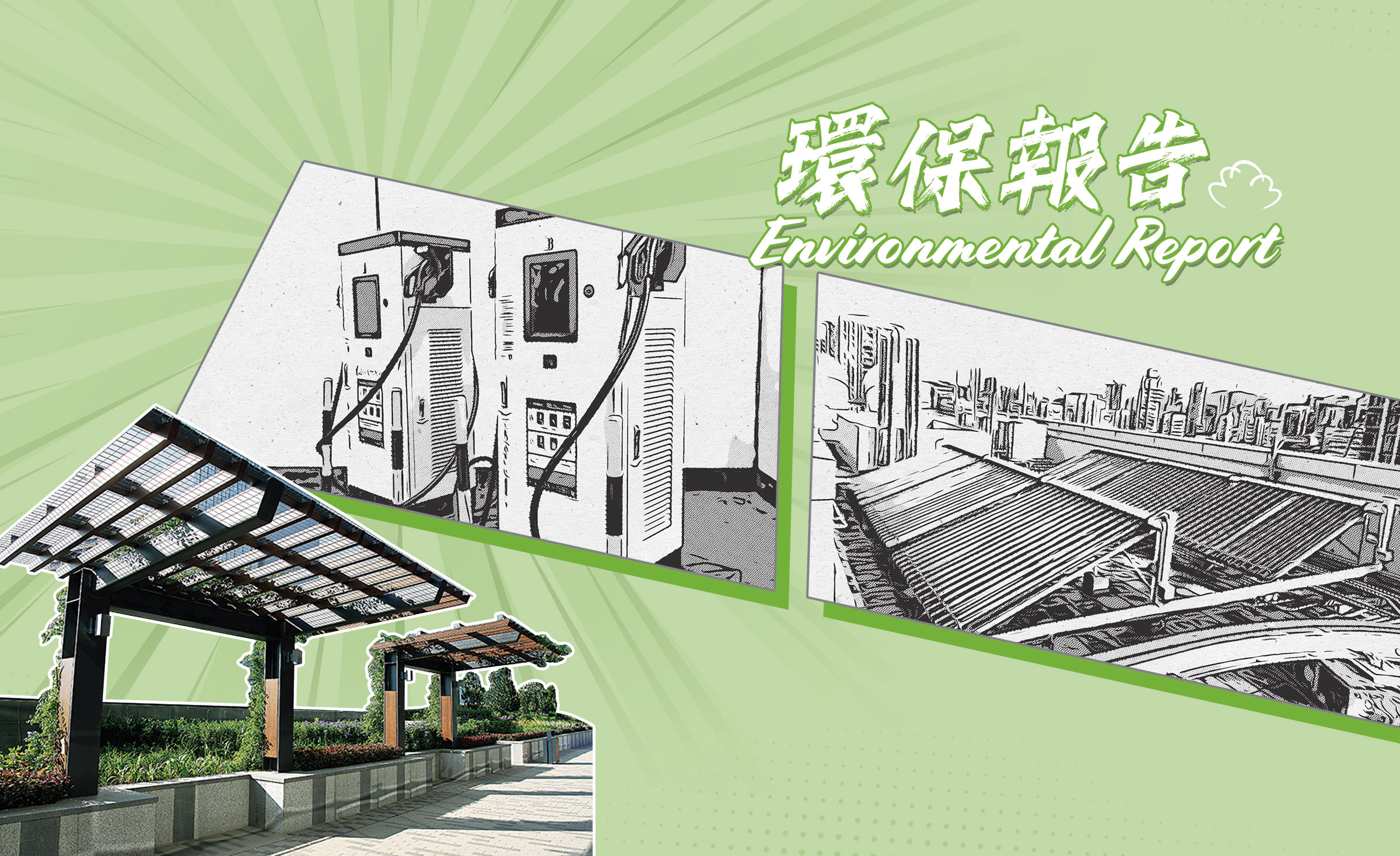
The Force is committed to environmental protection and sustainable development. Operations and services comply with green legislation, environmental-friendly codes of practice and good environmental management practices. Members of the Force endeavour to minimise waste and prevent pollution. The Steering Committee on Green Management provides directives and monitors the implementation of energy-saving and environmental management initiatives in the Force.
Environmental Performance in 2023
Green Features in Police Premises
Photovoltaic panels are installed in various premises including the Kowloon East Regional Headquarters Complex, the Auxiliary Police Headquarters, the Border District Headquarters, the Police Officers' Club and the Fan Garden for married junior police officers to tap solar renewable energy for use. Installation in more premises is under way.
Solar hot-water heating systems are also in use in the Kowloon East Regional Headquarters Complex, Tsim Sha Tsui Police Station and Yau Ma Tei Police Station.
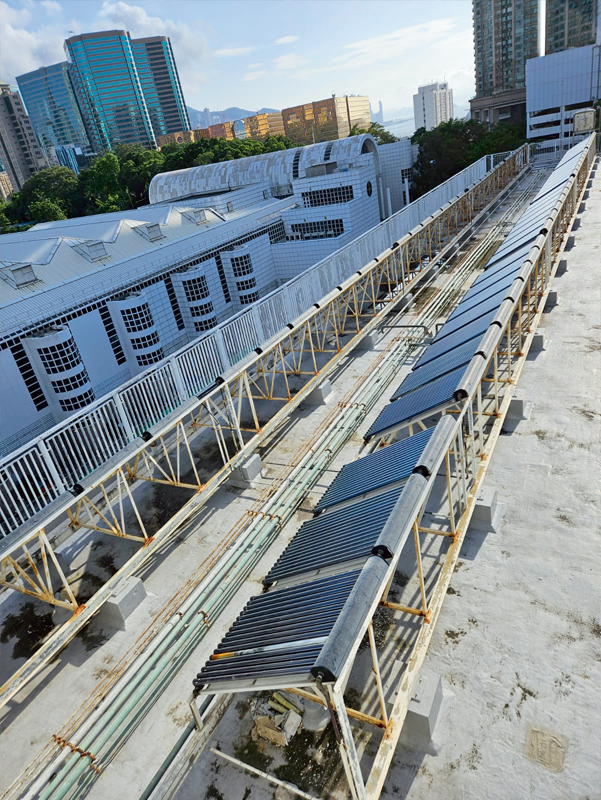
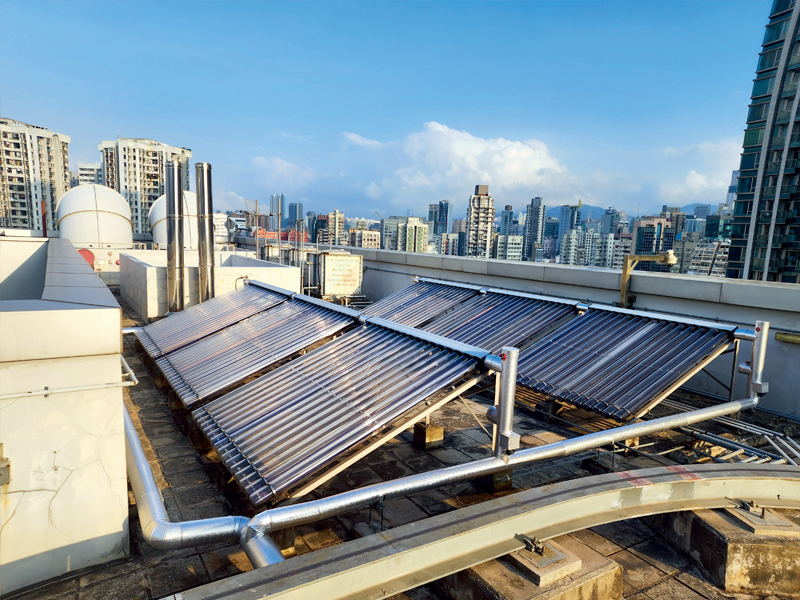
Photovoltaic panels on the roofs of the Yau Ma Tei Police Station and Tsim Sha Tsui Police Station serve to heat up water.
The Force continues to explore the incorporation of more green features to reduce energy consumption. For example, a number of police stations converted their lighting systems to light-emitting diodes (LEDs) and replaced aged chillers to raise energy efficiency. In addition, anti-heat paint was applied on the roof of the Police Tactical Unit Headquarters building to lower its surface temperature.
Green Transport
Charging facilities have been progressively installed to promote wider use of electric vehicles, with the aim of improving roadside air quality and reducing greenhouse gases. These facilities can be found at the Chai Wan Police Married Quarters, the Aberdeen Police Station, the Police Headquarters Complex and the Kowloon East Regional Headquarters Complex. Electric vehicles have also replaced the conventional vehicles of several police units.
Measures are in place to lower greenhouse gas emissions from the Marine Police's fleet. Examples include the use of biodegradable B5 diesel and an emission management system for engines in new vessels.
Housekeeping Measures
The Force implements green measures that reduce energy consumption. Motion sensors and automatic lighting systems turn off lights that are not in use. The operating hours of outdoor lighting are adjusted to optimise the use of sunlight. External lights for decorative, promotional and advertising purposes are switched off at or before 10pm, until 7am the following day. Independent air conditioning control systems are deployed to control room temperatures efficiently.
More housekeeping measures include shortening the operating hours of lifts and escalators during off-peak periods, setting up roof gardens and using ultraviolet window film to lower room temperatures.
Notices and stickers are displayed near light switches and other electrical devices to promote energy saving, and in pantries and toilets to remind people to use less water and paper towels. Notices are also affixed on windowsills to encourage opening windows in winter for better ventilation and to reduce air conditioning usage where appropriate.
Paper consumption is kept low by employing electronic means of disseminating information as far as possible. Members of the public are asked to view the Police Public Page at www.police.gov.hk and the Force's social media channels for information. In 2022-23, the Force used 238,347 reams of paper.
Staff canteens and recreational venues observe the Government's policy of avoiding disposable tableware and comply with the enhanced Plastic Shopping Bag Charging Scheme. Posters are displayed in common areas, encouraging staff members to utilise reusable tableware and bring their own shopping bags.
Water Conservation
To save water, buildings are equipped with smaller shower heads, water taps that have flow controllers and automatic sensors, dual-flush toilets, and sensor flush valves for urinals. Rainwater harvesting systems help with irrigation, which is another way of conserving water.
Food Wise Campaign
To support the Environmental Protection Department's Food Wise Charter, the Force reduces food waste by requesting canteen operators to review their supplies and provide portioning options, and by encouraging staff members to order meals thoughtfully and take away leftovers.
Waste Reduction
The Force runs recycling programmes for paper, cans, plastic bottles, glass bottles, cartridges, used cooking oil, fluorescent lamps, rechargeable batteries and electrical appliances. Recycling bins on the Force's premises facilitate the recycling of waste paper, plastics, metals and glass bottles.
Regular activities are held to provide a staff platform to exchange unwanted items, such as books and electrical appliances.
Police barges are fitted with a high-standard biochemical domestic sewage treatment setup to minimise the effluent discharged.
Indoor Air Quality (IAQ)
The Force participates in the IAQ Certification Scheme and has achieved Excellent/Good Class IAQ certification.
Green Procurement
In support of the Government's green procurement policy, the Force buys green products, such as uniforms, office furniture, equipment and stationery. The fire extinguishers of new police vessels meet the requirements of the Government's Reference List of Green Products.
Carbon Management
Carbon audits of 68 police buildings were conducted from January 1 to December 31. The results showed that greenhouse gas emissions from these buildings on average contained 0.12 tonnes of carbon dioxide per square metre of floor area.
Energy Performance
The Government has set a 6% “Green Energy Target” for 2024-25, using comparable operating conditions in 2018-19 as the baseline. This target covers not only government buildings but also infrastructural facilities, and will save electricity and other forms of energy, such as town gas and liquefied petroleum gas. The contribution of renewable energy to carbon reduction will also be taken into account.
In 2022-23, the Force achieved an energy improvement of 1.84%, comprising energy savings of 1.75% and renewable energy generation of 0.09%.
Environmental Awareness of Staff
Green management concepts are incorporated into staff training programmes and activities, and discussed regularly at briefings, meetings and training sessions. Green Wardens promote in-house awareness of green office practices and circulate green tips periodically.
Engagement with Stakeholders
The Force continues to co-organise the Used Clothing Collection Campaign with the Christian Action and participated in Earth Hour 2023, a lights-off event held by the World Wide Fund for Nature.
The Way Forward
The Force fully supports the Government's environmental protection policies and initiatives to combat climate change. It will continue to implement the 3-R principles – reduce, reuse, recycle – across daily operations, adopt energy-efficient features, closely monitor the effectiveness of energy-saving measures and explore ways of expanding and promoting green management principles.

